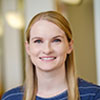This article is more than 5 years old.
Summer Institute for Intercultural Professional Development and Pedagogy
What is the Summer Institute?
On Wednesday, June 15th and Thursday, June 16th, Mary Beth and I attended the Summer Institute for Intercultural Professional Development and Pedagogy. This was a two day and one night retreat at Graylyn, sponsored by the Office of the Provost. There were 32 participants from all parts of the university — 17 faculty members from the College and Divinity School and 15 staff members from various offices on campus. In terms of goals, the retreat was an opportunity to examine ourselves and to develop inclusive practices in our own work to enhance diversity and inclusion on campus.
My Reflection on the Experience
My personal goal in attending the retreat was to focus on developing inclusive pedagogy in my classroom. Halfway through the first day, faculty with teaching responsibilities were separated to discuss the possibility (and the impossibility) of developing “best practices” around inclusive and complex communities. Some of my takeaways from this discussion were:
“Re-framing” teaching topics to be more inclusive. For library instructors, this might mean taking the time to develop inclusive search examples and discussing issues like the digital divide or the inherent bias in systems of information organization
When encountering student resistance (or apathy) to discussing difficult topics, it may help to “name your intention” in teaching that particular thing
Consider the disconnect between asking students to embrace ambiguity while also asking them to write papers with thesis statements (or other projects in which students feel compelled to demonstrate no ambiguity)
At the end of the first evening, we were given a book called What if I Say the Wrong Thing?: 25 Habits for Culturally Effective People (I’m happy to loan this out if you want to read it). We were challenged to choose one or two of the habits to focus on for the coming year. The first one I chose is “If You See Something, Say Something” which focuses on speaking up when you witness microaggressions (and macroaggressions, too) or implicit bias. The second habit is “Learn to apologize,” (which I find ironic, because I’m also continually working on not apologizing so much). We also talked a lot about accountability, so I’m leaving those personal commitments here for all of you to read and I’ve added “check-ins” on my calendar to remind myself of to check-in on my progress going forward.
On the final day of the retreat, we were tasked with creating personal action plans. My action plan involves engaging more deeply with pedagogies that are more inclusive and applying these pedagogies in my classroom. I’ve set out a timeline with specific tasks to achieve throughout the summer — these include finally getting around to reading Teaching to Transgress and locating readings (for myself and my students) on writing biographies for people whose cultural background is not one’s own. All of this will culminate this fall, when my students will develop Wikipedia entries/biographies of underrepresented persons from North Carolina’s history. I’m really excited about this project, so please ask me more about it if you see me!
Throughout the retreat, we were partnered and grouped with others to explore complex issues. I learned so much from my colleagues, and for me the opportunity to meet and learn from like-minded colleagues was an irreplaceable experience. I hope that we will develop communities of practice around these issues going forward.
I have a strong hunch that this summer retreat will become an annual event. I highly encourage everyone to apply and attend. I’d be happy to talk with anyone about the experience.

1 Comment on ‘Amanda at the Summer Institute for Intercultural Professional Development and Pedagogy’
Amanda, I have also been meaning to read Teaching to Transgress for a long time, so if you need a reading buddy or want to get together to talk about it, let me know!